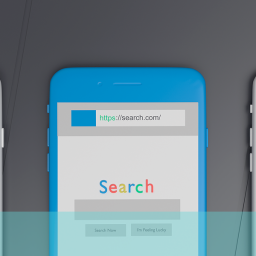
How different Mobile Browsers influence User Experience
As Google Chrome, Firefox and Internet Explorer account for around 75% of the total browser market between them, it is natural to assume that one of these would offer the best mobile browser user experience. Surprisingly, a recent review by Fixya.com (a sort of tech DIY site) suggests this is not the case, handing the accolade to Safari who have just 15% of the global market (and that almost exclusively on i-phones and ipads).
- Google 43%
- Firefox 18%
- Internet Ex 16%
- Safari 15%
- Opera 3%
(source: www.w3counter.com/globalstats.php)
But what exactly does this mean for site owners and developers? It is slightly more complicated than simply stating that Safari is the best browser for mobile user experience. The Fixya survey outcomes were based on aggregating software developer problems against the market share of the individual browser companies. This means the results are based on the opinions and issues of developers rather than users; nonetheless it is a valid and revealing review and the difficulties developers have with testing their sites on browsers can be extremely relevant and important to site owners and managers.
The top two browsers from this analysis were Safari and Android Stock Browser which is the one Google developed to be installed on all Android phones. Interestingly this means that the best browsers are both stock browsers designed specifically for mobiles. Perhaps this is not surprising given this was a survey of mobile browser usability but it does reinforce the belief that designing for specific platforms beats generic design.
Returning to the question of the implications for site owners and managers here, it might be instructive to reflect on the rise of Google Chrome and the fall of Internet Explorer (IE) before dismissing the relevance of Safari. Google came relatively late to the browser market and IE was well-established as the market leader at the time but Chrome has pushed Google to the top of the rankings in just a few years. Add to this the increasing tendency of users to browse on mobiles (a trend which is likely to continue and even accelerate) and it becomes clear that the mobile user experience benefits that Safari (and other browsers) offer, could be significant.
A quick summary of the major browsers and their benefits and drawbacks as far as mobile user experience goes, might help you to decide what you should include in your future site testing regime.
- Safari:
- Pros – simple UI, multiple actions on page, reading list
- Cons – no flash, video integration poor, limited real estate
- Android stock:
- Pros – simple, quick, best flash support on mobiles
- Cons – random crashes, password concerns, limited support
- Chrome:
- Pros – core features from desktop incorporated, smooth UI, compatibility
- Cons – no flash, font recognition problems, tabbing issues
- Opera:
- Pros – smooth UI, some users report low data charges, HTML5 support
- Cons – screen real estate, security concerns
- IE:
- Pros – compatibility, screen real estate, touch swipe
- Cons – font recognition, search engine options, poor rendering
If you want to stay up-to-date with what is going on both technologically and market-wise and ensure that your ecommerce site keeps competitive, why not call us free on 08000 246 247 or drop us an email at hello@ux247.com.

















